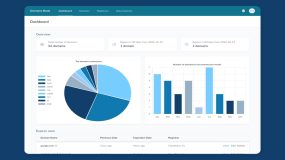
Welcome to our comprehensive guide on optimizing website performance. In today’s fast-paced digital world, a high-performing website is crucial for attracting and retaining visitors. Slow-loading websites can lead to frustration and drive potential customers away. In this article, we will explore actionable tips and best practices to enhance your website’s performance, ensuring a smooth user experience and improved search engine rankings.
Unleashing the Power of Your Website
When it comes to your website’s performance, every second counts. By following these tips and implementing best practices, you can optimize your website for speed and efficiency, providing an exceptional user experience.
Streamline Your Code and Scripts
One of the key factors affecting website performance is the cleanliness and efficiency of your code. Minimize unnecessary white spaces, comments, and line breaks to reduce file size. Optimize your HTML, CSS, and JavaScript by combining and compressing them. Remove unused scripts and plugins that can slow down your website. This optimization technique will significantly improve your website’s loading speed.
Optimize Image Size and Format
Images are an integral part of most websites, but they can contribute to slow loading times if not optimized correctly. Compress your images without compromising quality by utilizing image compression tools or plugins. Choose the appropriate image format based on the content—for example, JPEG for photographs and PNG for graphics with transparency. Additionally, implement lazy loading to load images as users scroll down the page, reducing initial load times.
Leverage Browser Caching
Browser caching allows users to store certain elements of your website on their local devices, reducing the need to download them on subsequent visits. Enable caching headers on your server to instruct browsers to cache static resources such as images, CSS files, and JavaScript. This significantly improves load times for returning visitors, enhancing their overall experience.
Content Delivery Network (CDN)
Implementing a Content Delivery Network (CDN) is a powerful strategy to enhance website performance. A CDN distributes your website’s static content across multiple servers located in various geographic regions. When a user accesses your site, the CDN serves the content from the server closest to their location, minimizing latency and improving load times. This distributed approach ensures fast and reliable content delivery, regardless of the user’s location.
Mobile Optimization
With the majority of internet users accessing websites through mobile devices, optimizing your site for mobile is paramount. Embrace a responsive design that adapts seamlessly to different screen sizes and orientations. Prioritize mobile-friendly layouts, font sizes, and touch-friendly elements. Conduct thorough testing across various mobile devices and operating systems to ensure a consistent and optimal user experience.
FAQs
Q1: How can website performance impact search engine rankings?
Website performance, particularly page loading speed, is a crucial factor in search engine rankings. Search engines like Google prioritize websites that provide a fast and seamless user experience. Slow-loading websites tend to have higher bounce rates, negatively impacting search engine rankings. By optimizing your website’s performance, you increase your chances of ranking higher in search results and attracting organic traffic.
Q2: Are there any tools available to measure and analyze website performance?
Yes, there are several tools available to measure and analyze your website’s performance. Google’s PageSpeed Insights and GTmetrix are popular options that provide detailed reports on your site’s speed and performance. These tools identify areas for improvement and offer actionable recommendations to enhance your website’s performance.
Q3: What is the role of website performance in user engagement?
Website performance directly affects user engagement. Studies show that users expect websites to load within a few seconds, and any delay can lead to frustration and abandonment. A fast-loading website not only keeps users engaged but also encourages them to explore and interact with your content. By prioritizing website performance, you create a positive user experience that fosters engagement and conversions.
Q4: How often should I monitor and optimize my website’s performance?
Website performance should be monitored regularly to ensure optimal functionality. Conduct periodic performance audits using tools like Google Analytics to identify areas for improvement. Additionally, keep an eye on industry trends and technological advancements to stay ahead of the curve. Continuous optimization is key to maintaining a high-performing website.
Q5: What impact does website performance have on conversion rates?
Website performance has a significant impact on conversion rates. A slow-loading website increases the likelihood of visitors abandoning your site before completing desired actions, such as making a purchase or filling out a form. On the other hand, a fast and responsive website creates a seamless user experience that encourages conversions. By optimizing your website’s performance, you can improve conversion rates and drive business growth.
Conclusion
Optimizing your website’s performance is essential for providing a seamless user experience and maximizing your online presence. By streamlining your code, optimizing images, leveraging browser caching, implementing a CDN, and prioritizing mobile optimization, you can significantly enhance your website’s speed and efficiency. Regular monitoring and optimization ensure that your website remains at the forefront of user expectations and search engine rankings. Remember, a high-performing website is a powerful tool for driving engagement, conversions, and business success.








